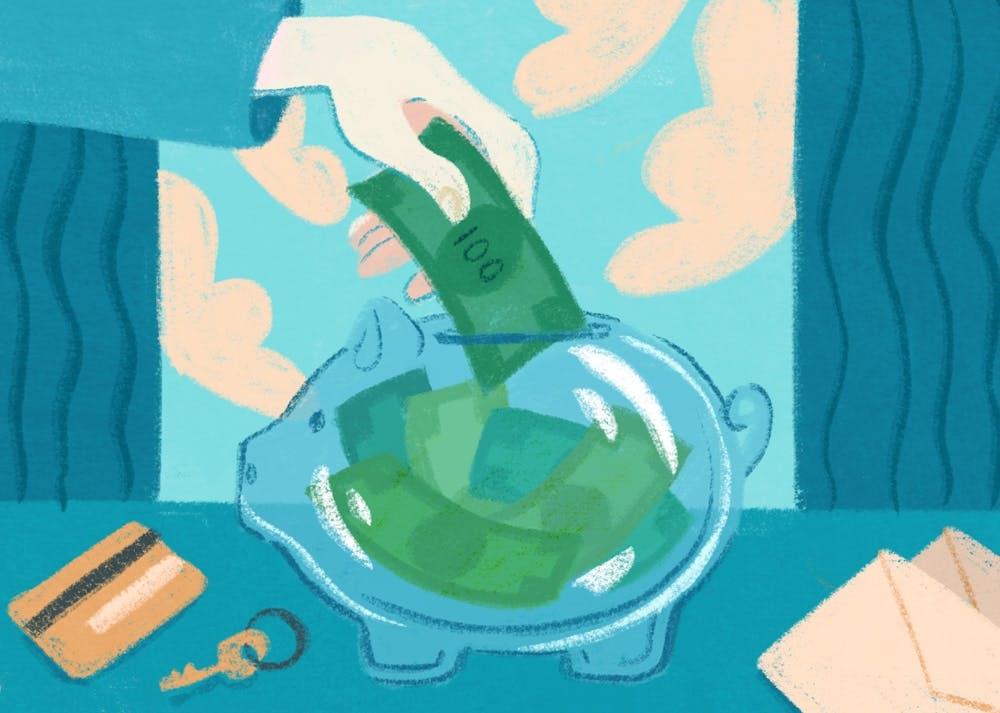It was the middle of March during spring break. I was nestled inside my parents’ house as the long Wisconsin winter finally began to wane.
That’s when the notification for an email from Michael Crow sent a violent buzz through the phone in my hand. In-person classes at ASU weren’t resuming through the end of the semester. I wasn’t going back to Tempe.
With a medical history 10 miles long, returning to campus was not a risk I was willing to take. I was fortunate enough to have caring parents who would feed and accommodate me, which already placed me in better circumstances than a good number of students.
However, staying home meant I was forgoing working at my on-campus job: my lone source of income that went toward credit card bills and unpaid medical debts.
When the temporary $600 per week unemployment benefit became law as part of the CARES Act in late March, I was skeptical. The $600 per week seemed like a bit much, more than was needed for people to get by, even during a public health crisis.
What I didn’t realize is that during such a crisis, just "getting by" is not nearly enough.
After determining I was eligible for unemployment in my home state, I submitted an application and was soon collecting just under $600 every week after taxes through the end of July.
While this program is now over, unemployed residents in some states, including Arizona, were eligible for a temporary $300 weekly boost from an executive order issued by President Donald Trump. Funding for that program ran out after several weeks and Congress has not yet been able to agree on a second stimulus bill.
Arizona Gov. Doug Ducey has declined to use the state's resources for supplementing unemployment insurance, instead calling on Congress to "do their job."
The first thing I did was settle medical debts from a year past. Even as entire cities ground to a halt, the nonstop calls from debt collectors never ceased. Every time I saw those phone numbers pop up on my screen, I was reminded of my nearly empty bank account and sent into a fit of anxiety. But that was one less thing to worry about and obsess over.
Next, I paid off the entirety of my credit card balances. The first year of college was especially hard on me financially, struggling to find a job that worked around my busy schedule and maxing out several cards in order to afford my textbooks and feed myself, just digging myself into a financial hole that cost hundreds of dollars each month just to avoid interest and late fees.
After receiving my unemployment payments, those struggles went away.
After that, I put the rest of my payments in savings in the hope that putting money away would allow me to borrow less in student loans for upcoming semesters, and it did. For fall 2020 and spring 2021, my student loan is less than half of the amount it was for the year before.
Finally, I started the real estate investment business I've wanted to start for years, using unemployment checks to pay startup costs.
For the first time since becoming an adult, I feel like I can finally breathe. I don't have to check my bank account before I buy a bottle of water from a vending machine. I don't have to Venmo a friend from a credit card and have them send it back just so I can make the minimum payments on other cards.
It's true that I did more than get by with the $600 weekly stipend. I was able to start saving and build a financial future for myself. Since the $600 ended, I've had to put the brakes on adding more money to my savings in order to pay for rent and groceries.
With all of the mental and emotional stress that COVID-19 has caused for so many, just getting by wouldn't have been enough. I needed to get ahead. I needed to get comfortable. That's exactly what the $600 per week did for me, and I am so grateful for it.
Reach the reporter at bdoemel@asu.edu or follow @brockdoemel on Twitter.
Like The State Press on Facebook and follow @statepress on Twitter.




